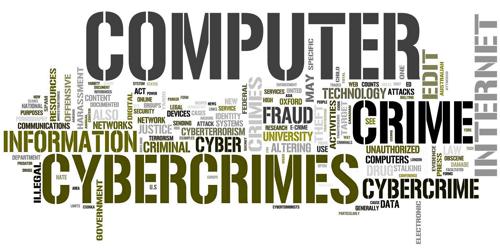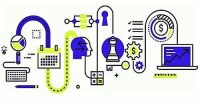Criminal actions accomplished through the use of a computer system, especially with intent to defraud, destroy or make unauthorized use of computer system resources.
Computer or cybercrime may contain broader terms like hacking, copying of copyrighted substance, child grooming, stealing and mishandling of Confidential/private information of someone else, making a computer virus or a bug or a malware with a purpose to plot at someone’s computer or a network in order to gain a advantage or to take retribution or another cause which make you do such an act is a computer crime.
Computer Security Issues: Hacking unauthorized access to or use of data, systems, server or networks, including any attempt to probe, scan or test the vulnerability of a system, server or network or to breach security or authentication measures without express authorization of the owner of the system, server or network. Members of the University should not run computer programs that are associated with hacking without prior authorization. Obtaining and using such programs is not typical of normal usage and may therefore otherwise be regarded as misuse.
Use of University-owned computer equipment, including the network, for illegal activities including copying Copyright material without permission. The vast majority of files shared on P2P (peer-to-peer) networks violate copyright law because they were posted without permission of the artist or label.
- Sending abusive e-mails or posting offensive Web pages.
- Creation or transmission of any offensive or indecent images.
- Giving unauthorized access to University computing resources e.g. allowing an account to be used by someone not authorized to use it.
- Deliberately creating or spreading computer viruses or worms.
- Unauthorized .running of applications that involve committing the University to sharing its computing resources, e.g., network bandwidth, in an uncontrolled and unlimited way.














